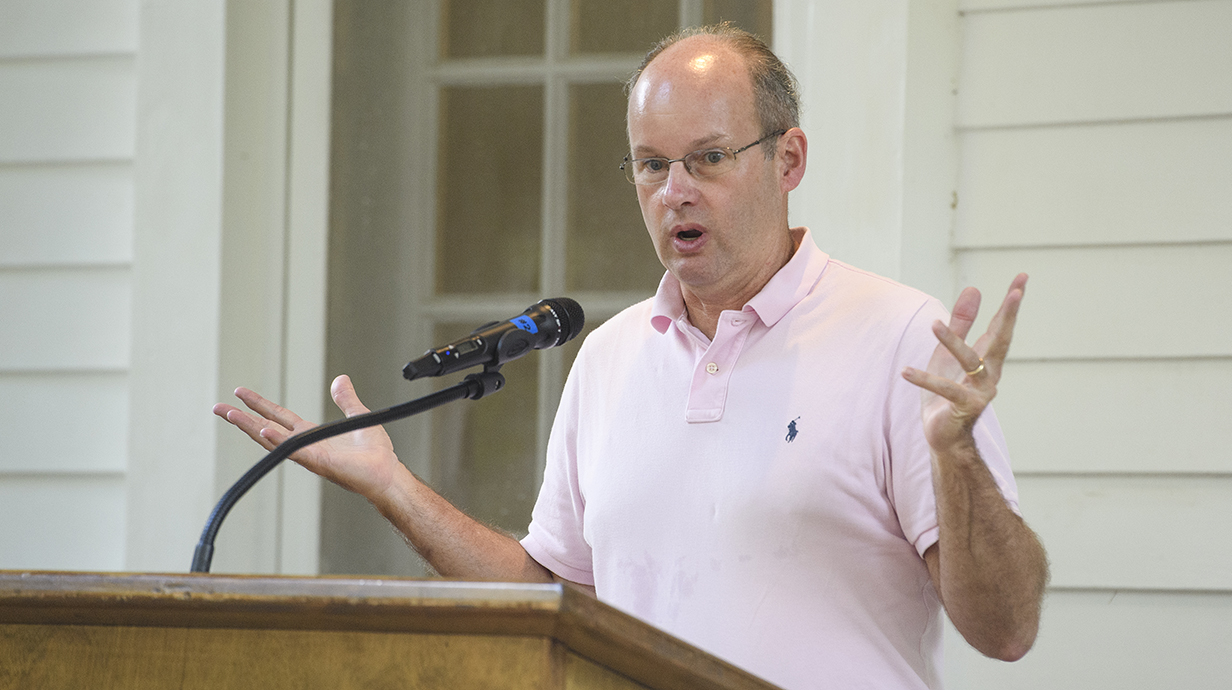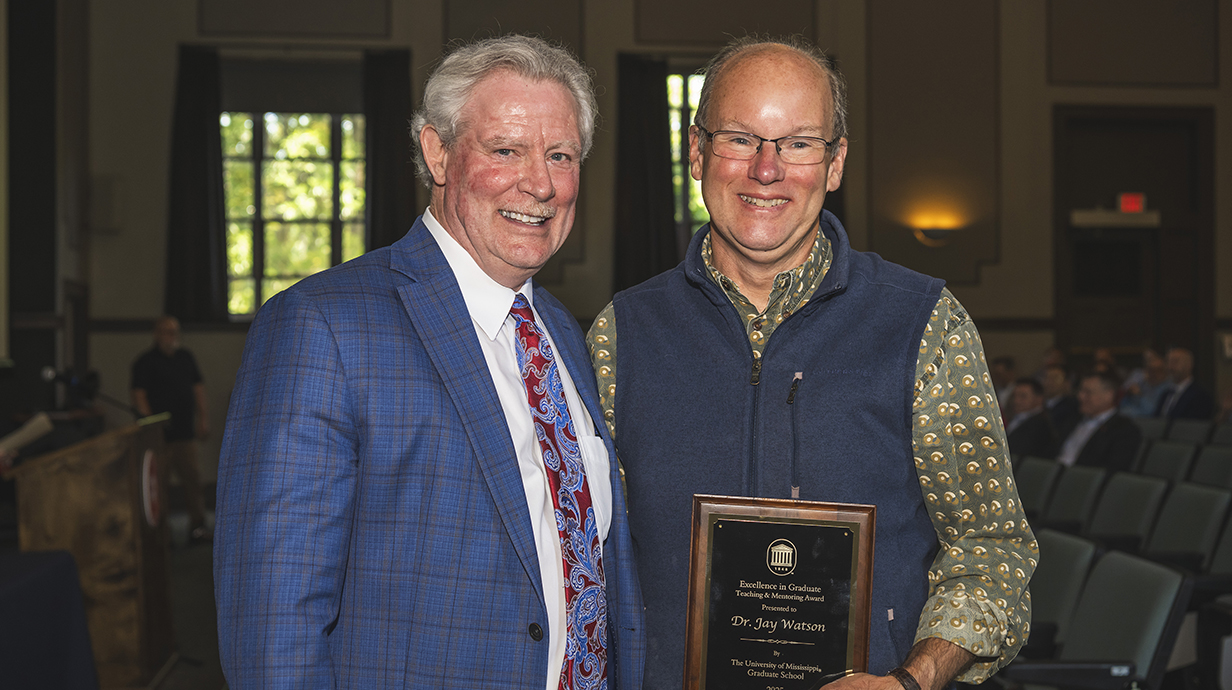Faulkner Scholar to Retire After Three Decades at Ole Miss
Jay Watson leaves long-lasting impact on students, Southern literature and Faulkner studies

OXFORD, Miss. – Jay Watson, a leading voice in William Faulkner studies and University of Mississippi professor, retires Monday (June 30) after more than three decades of teaching, research and service.
He served as the Howry Professor of Faulkner Studies in the Department of English since 2010 and directed the annual Faulkner and Yoknapatawpha Conference since 2011. Watson earned his doctorate from Harvard University in 1989 and joined the Ole Miss faculty that same year.
"This is the best place in the world to teach and do scholarship on William Faulkner," he said. "Oxford is a great place to raise a family, and I've really enjoyed my colleagues here. So, I've just never really been seriously tempted to leave."
The Athens, Georgia, native leaves the university as much more than just a professor. His international contributions include editing academic journals, publishing books and articles on Southern literature and film, and serving as president of the William Faulkner Society.
Former students describe Watson as the "complete package" when it comes to energizing education.

"Jay taught me how to be a professor," said Ben Child, a former doctoral student of Watson's and associate professor of English at Colgate University.
"He showed me how to make material feel alive and relevant. Years later, I still find myself thinking, 'What would Jay do?' He set a standard that continues to influence how I teach and write."
Watson's blend of encouraging students to think deeply and holding them to high standards also extended to generations of undergraduates. Patty Jernigan, an English and Southern studies major from Oxford, said one of Watson's spring 2025 courses reshaped her perspective of the South.
"Our class read from various lenses ranging from the African American experience, the Asian American experience, Native Americans, refugees, migrants, women – the list could go on," Jernigan said. "The connections and ties between all the different lenses we explored in the class have deepened my appreciation and understanding of Southern literature and culture.
"Dr. Watson's teaching style will always be memorable to me because of how open, thought-provoking and engaging the class environment was."
Teaching has never felt like a one-way relationship, Watson said. His students helped keep his work fresh and his spirit young.
"I've gotten my last couple of big research ideas from teaching classes," he said. "They just kind of grew out of discussion with my students.
"Sometimes you turn around and your research feeds your teaching because you create new classes based on that work. Service, scholarship and research all tie together."
The 51st annual Faulkner and Yoknapatawpha Conference, scheduled for July 20-24 at Ole Miss, will mark Watson's final year as conference director. This year's "Faulkner's Bodies" theme invites scholars to explore topics such as health, disability, aging, gender and biography across the Nobel Prize-winning author's work.

Chancellor Glenn Boyce (left) presents Jay Watson with the 2025 Excellence in Graduate Teaching and Mentoring Award at the spring faculty meeting in Fulton Chapel. Photo by Srijita Chattopadhyay/Ole Miss Digital Imaging Services
Under Watson's leadership, the Faulkner conference evolved into a global gathering of scholars, students and readers, including attendees with expertise outside Faulkner studies. People from across the U.S. and abroad regularly attend, with the conference drawing speakers from as far away as Japan and Kazakhstan.
Watson's legacy unquestionably includes his conference leadership, said John T. Matthews, a Faulkner studies scholar and English professor at Boston University.
"At the annual Faulkner conferences from the '90s on, I remember him particularly as the most interesting and acute questioner of speakers, something I really admired," Matthews said. "That's always been one of his personal scholarly abilities: the ability to size up others' arguments on the spot, marshal his vast knowledge of Faulkner and other Southern writing, and facilitate conversation."
Those qualities obviously reflect Watson's reputation as a renowned educator, as well as one of the preeminent Faulkner scholars of his era, he said.
"His own scholarship – in its breadth, currency, imaginativeness and authority – have shaped our field in fundamental ways that will have long-lasting influence," Matthews said. "And that field, I should add, extends well beyond Faulkner studies."
As Watson retires, he looks forward to a serendipitous new title: first-time grandfather.
"The end of June marks my retirement date and it's also when our first grandchild is due, which I obviously didn't see coming when I made the plans," he said. "So, I have a second career waiting for me: learning how to be a grandfather."
Top: Jay Watson, an English professor and respected Faulkner studies scholar, speaks at Rowan Oak during a 2019 event unveiling the William Faulkner marker installed along the Mississippi Writers Trail. Watson is retiring after more than three decades of teaching, research and service to the university. Photo by Thomas Graning/Ole Miss Digital Imaging Services
By
Marvis Herring
Campus
Office, Department or Center
Published
June 30, 2025
